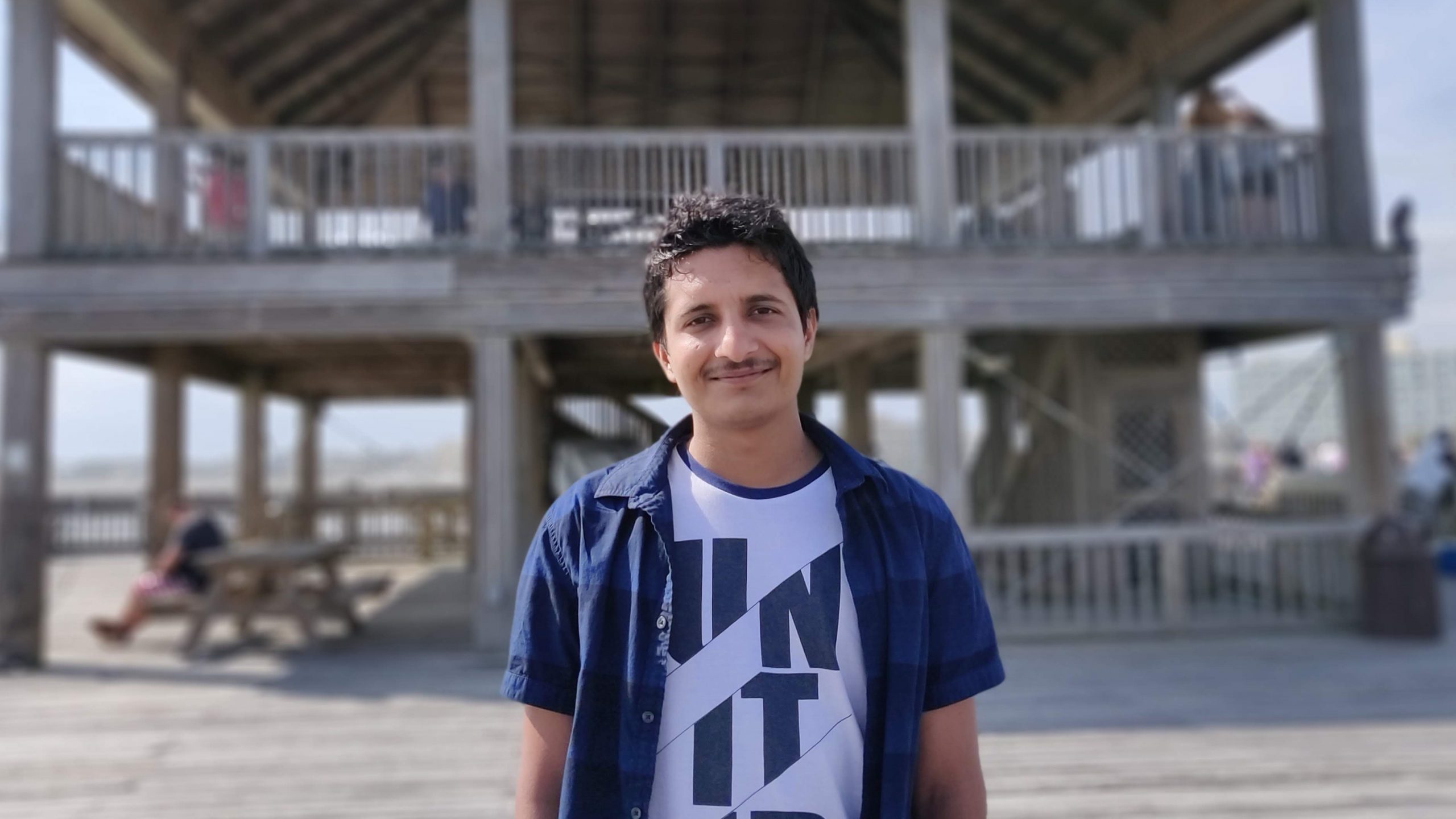Researcher Spotlight – Hemant Kumar

2020-21 Global Change Fellow
PhD Student, Department of Civil, Construction, and Environmental Engineering
Advisor: Dr. Sankar Arumugam
Every year the Southeast Climate Adaptation Science Center funds a multi-disciplinary cohort of Global Change Fellows representing colleges across NC State University. Here are some highlights about 2020-21 Fellow, Hemant Kumar, and the applied research he’s conducting.
About You
What do you study?
I am a hydrologist in the third year of my Ph.D. I am developing a model to link the water requirements of agriculture at the county level to available water resources and thus come up with optimal allocation of water to various crops in the Flint River Basin, Georgia.
What (or who) influenced you to go into this field of study?
I have always been fascinated by water. I also come from an agrarian background and have seen groundwater levels dip year after year. Both of these factors lead me to pursue a field at the intersection of water resources, agriculture, economics, and climate change. My advisors during my master’s program, research internship, and my current advisor also motivated me towards this research area.
What do you think is the most pressing issue related to global change?
Global climate change would alter weather patterns drastically by changing the total annual precipitation, number of heating degree days, high flood events, etc. This would affect the availability of water during the crop growing season and may impact regional food security and preparedness for natural disasters.
What is your dream job?
My dream job would be as a university faculty and to simultaneously work with local communities and governmental agencies to translate academic research into solutions for real-world problems.
About Your Research
What results are you finding?
We are finding that as more and more farmers adopt supplemental irrigation in the southeast US, it is imperative to model the increased agricultural demands and the connection between water and food systems. We also observe that flood irrigation is not the most economical approach; instead, deficit irrigation is a more sound strategy. The yield increases as we supply more water but after a certain threshold, the increase in resulting pumping costs offsets the increased revenue from increased yield. Therefore, supplying water beyond that threshold is unprofitable. This implies that the adoption of deficit irrigation can result in increased regional profit and more irrigated acreage.
How can your research be used to inform management decisions?
The model can be used by regulators to anticipate the potential increase in water demands as a result of market and weather speculations. Because water availability is limited in dry years, municipal and irrigation use often compete with each other. This model can help assess the financial impact of county-wide regulations on irrigated acreage.
How would you describe your research to a 10th grader?
Water is required for food and electricity production as well as for municipal and industrial uses. Agriculture, in particular, requires large quantities of water (a third of all water withdrawals in the Flint River Basin are for agriculture). The hydroeconomic model which I am developing helps in estimating the economic value of the agricultural products generated using the water. It also helps to calculate the losses to farmers if we limit the water supply during dry years and potential profits from switching to more efficient irrigation management strategies.
About Your Global Change Fellow Experience
What has been the most rewarding part or your favorite part of being a SE CASC Global Change Fellow?
The most rewarding part of being a SE CASC Global Change Fellow has been meeting other researchers working on climate change. They introduced me to the other dimensions in which climate change impacts people and biodiversity and how the solutions require collaboration between different fields.
What advice would you give to a student that is interested in getting involved in your field?
Grad school provides an opportunity to explore various interests and finally settle on a topic which you like. It may be just hydrology or intersection of hydrology, economics, agriculture, etc. Please come with an open mindset to learn deeply about new things. It will help you explore newer ideas.
What advice would you give to an incoming Global Change Fellow to get the most out of their experience?
I would suggest the incoming fellows to talk to other fellows and learn about their research and experiences. The problems we are facing in the current times are multidimensional and their solutions would require collaboration between different disciplines and stakeholders. Being a Global Change Fellow provides a unique opportunity to learn about many other disciplines.
Miscellaneous
You can learn more about my research at http://hkumar.in.
